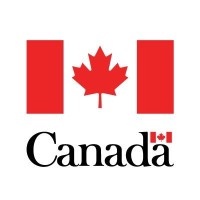
Closed
Rail Safety Improvement Program (RSIP) - Research and Education Component
Last Update: October 27, 2025
Canada
Funding for rail safety infrastructure, research, and education projects
Grant and Funding
At a glance
Funding available
Financing goals
Develop strategic partnerships
Raise awareness and mobilize the public
Increasing community impact
See more
Eligible Funding
- Maximum amount : 1,000,000 $
- Up to 50% of project cost
Timeline
- Closing date : January 24, 2024
Eligible candidates
Eligible Industries
- Transportation and warehousing
- Educational services
- Public administration
Location
- Canada
Legal structures
- Non-profit
- Public or Parapublic institution
- For-profit business
- Sole proprietorship
Annual revenue
- All revenue ranges
Organisation size
- All organization sizes
Audience
- Indigenous Peoples
- Rural or Northern Residents
- Canadians
- Youth (<40)
Non-profit candidates
Sector of operation
- Higher Education
- Other Education
- Research
- Environment
- Economic, Social and Community Development
- Employment and Training
- Children and Youth Organizations
- Diversity and Inclusion
Target groups
- General public
- Children & youth
- Young adults
- Indigenous peoples
- Nonprofits / charities
- Academia / students
Revenue structures
- All structures
Scope
- Municipal
- Regional
- Provincial
- National
Overview
The Rail Safety Improvement Program – Research and Education Component offers up to $1,000,000 per recipient annually to support projects that enhance rail safety through education, awareness, research, and the development of new technologies. Eligible activities include raising public awareness of rail hazards, conducting research to improve rail safety, and developing training curricula and safety measures for at-risk groups.
Activities funded
- Projects that increase awareness and understanding of the hazards at road/railway grade crossings and the dangers of trespassing on railway property, especially within at-risk groups and high-risk areas.
- Initiatives that support the development of formal training programs or measures to promote safe driving practices near rail lines and at grade crossings.
- Research projects that enhance understanding of behaviours, attitudes, and rail safety issues, including studies targeting specific at-risk groups near rail lines.
- Development, testing, or promotion of technologies or safeguards aimed at improving safety for railway workers and the public along rail lines and within railyards.
- Projects aimed at sharing and disseminating findings or information widely to improve rail safety across multiple communities or stakeholder groups.
Examples of admissible projects:
$ 110,000
Creating multilingual rail safety campaigns for new Canadians
$ 400,000
Developing AI-powered video analytics to monitor rail corridor trespassing
$ 195,000
Piloting a new safety training module for delivery drivers near rail lines
$ 158,000
Launching interactive rail safety workshops for local high school students
$ 375,000
Upgrading safety signage and barriers at popular urban rail crossings
$ 72,000
Conducting behavioural research on senior pedestrian safety near railways
Eligibility
- The applicant must be a province, territory, municipality, local or regional government, road or transit authority, crown corporation (including VIA Rail), for-profit organization, not-for-profit organization (including academia), Indigenous group, community, or organization, or an individual/private landowner.
- The project must aim to improve rail safety by addressing education and awareness or advancing research and technology related to rail safety.
- The project must align with the objectives of reducing rail-related injuries, fatalities, or incidents at grade crossings, or address risks such as trespassing or safety near rail lines.
- The applicant must demonstrate the capacity and relevant experience to successfully carry out and manage the proposed project.
Who is eligible?
- Provinces and territories
- Municipalities and local or regional governments
- Road and transit authorities
- Crown corporations (including VIA Rail)
- For-profit organizations (such as railway operators, railway owners)
- Not-for-profit organizations (including academia)
- Indigenous groups, communities, and organizations
- Individuals and private landowners
Eligible expenses
- Salaries and benefits for staff directly involved in the project.
- Costs for printing, publication, and distribution of informational materials.
- Room rentals and facility costs for project activities.
- Conference registration fees related to the project.
- Professional fees for contracted services, including translation, information development, data collection, analysis, and processing.
- Purchase or lease of capital assets required for the project.
- Administrative expenses such as rent, insurance, office equipment rental, and membership fees (up to 15% of total federal contribution for overhead).
- Travel expenses, including accommodation, vehicle rental, transportation (bus, train, airplane, taxi), and meal allowances, as per federal rates.
- Costs directly approved by the Minister as required for the project's success.
- Eligible in-kind contributions, provided they are essential for the project and have been approved, excluding donations from third parties.
Eligible geographic areas
- Provinces and territories across Canada.
- Municipalities and local and regional governments within Canada.
- Indigenous communities and organizations located in Canada.
Selection criteria
- Alignment of the project with the Rail Safety Improvement Program objectives and demonstration of how it will enhance rail safety through knowledge, research, technology, education, or awareness.
- Impact and scope of the proposed project, including potential benefits, innovation, and strategies to maximize reach.
- Performance measurement strategy, including clear goals, expected outputs and outcomes, and methodology for measuring success.
- Relevant experience and capacity of the applicant, including a qualified team and a track record of successful project delivery.
- Quality and comprehensiveness of the project plan, including a realistic budget, timeline, risk management strategies, and identification of funding sources or partnerships.
How to apply
1
Prepare project proposal documents
- Download and review the Project Proposal Template for the appropriate stream: Education and Awareness or Research and Technology
- Consult the Applicant’s Guide for detailed instructions on application requirements
- Gather all necessary information and supporting documentation for your project proposal
- Ensure the project addresses program objectives and eligible activities
2
Complete and assemble application
- Complete the Project Proposal Template with all required details
- Provide a clear project plan, timeline, and budget
- Include letters of support from partner organizations, if required
- Identify all sources of project funding, including in-kind and third-party contributions
3
Submit the application
- Submit the completed proposal and all supporting documents by email in MS Word or PDF format (maximum 10 Mb) to TC.RSIP-PASF.TC@tc.gc.ca
- Alternatively, send a signed hard copy or a digital copy saved on a USB key by mail to the address provided in the program guide
- Ensure submission before the application deadline
4
Await application results
- Receive automated receipt confirming the application was received
- Await notification from Transport Canada regarding project approval status
5
Sign agreement and launch project
- If selected, review and sign the funding agreement provided by Transport Canada
- Begin project activities as outlined in the approved agreement
- Prepare for bi-annual and final reporting requirements as stipulated
Additional information
- RSIP is currently not accepting applications; the last deadline was January 24, 2024.
- Contribution payments are disbursed through reimbursement of eligible costs or upon achieving predetermined milestones.
- Funding agreements may be subject to audits by Transport Canada.
- Annual and final reporting, including data collection on performance indicators, is required as part of the contribution agreement.
Contacts
TC.RSIP-PASF.TC@TC.GC.CA
1-866-995-9737
Canada
Apply to this program
Frequently Asked Questions about the Rail Safety Improvement Program (RSIP) - Research and Education Component Program
Here are answers to the most common questions about the Rail Safety Improvement Program (RSIP) - Research and Education Component. This section explains what the program is, how much funding is available, eligibility requirements, application deadlines, and other important details to help you determine if this grant is right for your business.
What is the Rail Safety Improvement Program (RSIP) - Research and Education Component?
How much funding can be received?
Who is eligible for the Rail Safety Improvement Program (RSIP) - Research and Education Component program?
What expenses are eligible under Rail Safety Improvement Program (RSIP) - Research and Education Component?
Who can I contact for more information about the Rail Safety Improvement Program (RSIP) - Research and Education Component?
Where is the Rail Safety Improvement Program (RSIP) - Research and Education Component available?
Is the Rail Safety Improvement Program (RSIP) - Research and Education Component a grant, loan, or tax credit?
Apply to this program
More programs like this

Grant and FundingClosed
Industrial Research Assistance Program (IRAP) – AI Assist
National Research Council Canada (NRC)Supports Canadian SMEs in adopting and integrating advanced AI solutions
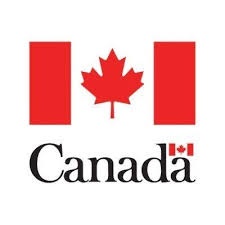
Grant and FundingClosed
Canada Public Transit Fund
Housing, Infrastructure and Communities CanadaSupports long-term public transit and active transportation infrastructure development

Researchers And FacilitiesPartnering and CollaborationWage Subsidies And InternsOpen
Mitacs Accelerate
MitacsConnect organizations with academia for research and innovation collaboration

Grant and FundingClosed
ISED — Artificial intelligence (AI)
Innovation, Science and Economic Development Canada (ISED)Supports testing innovative AI prototypes for Canadian government needs

Grant and FundingOpen
Active Transportation Fund
Housing, Infrastructure and Communities CanadaSupports infrastructure projects for safer, more accessible active transportation
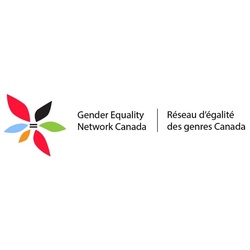
Partnering and CollaborationGrant and Fundingarchived
Equality for Sex, Sexual Orientation, Gender Identity and Expression Program
Women and Gender Equality Canada (WAGE)Supports equality initiatives for sex, sexual orientation, and gender identity
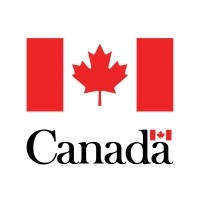
Grant and FundingClosed
Crime Prevention Action Fund (CPAF)
Public Safety Canada (PSC)Supports evidence-based crime prevention initiatives for at-risk communities
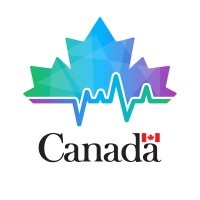
Grant and FundingClosed
Substance Use and Addictions Program (SUAP)
Health CanadaSupports innovative projects addressing substance use prevention and treatment

Grant and FundingClosed
Enhanced Road Safety Transfer Payment Program (ERSTPP)
Transport CanadaFunds projects to enhance road safety and reduce traffic injuries

Grant and FundingOpenClosing Soon
CanExport GAC-Led Delegations
Trade Commissioner Service (TCS)Cost-sharing support for SMEs joining GAC-led trade delegations
Sign up to our platform to access the Rail Safety Improvement Program (RSIP) - Research and Education Component information sheet for free
Get access to 4,000+ programs, practical guides, personalized alerts, and an AI assistant to support your grant applications.